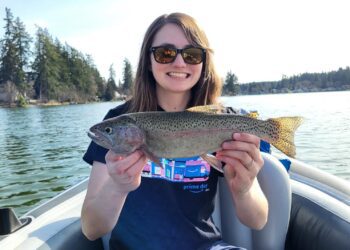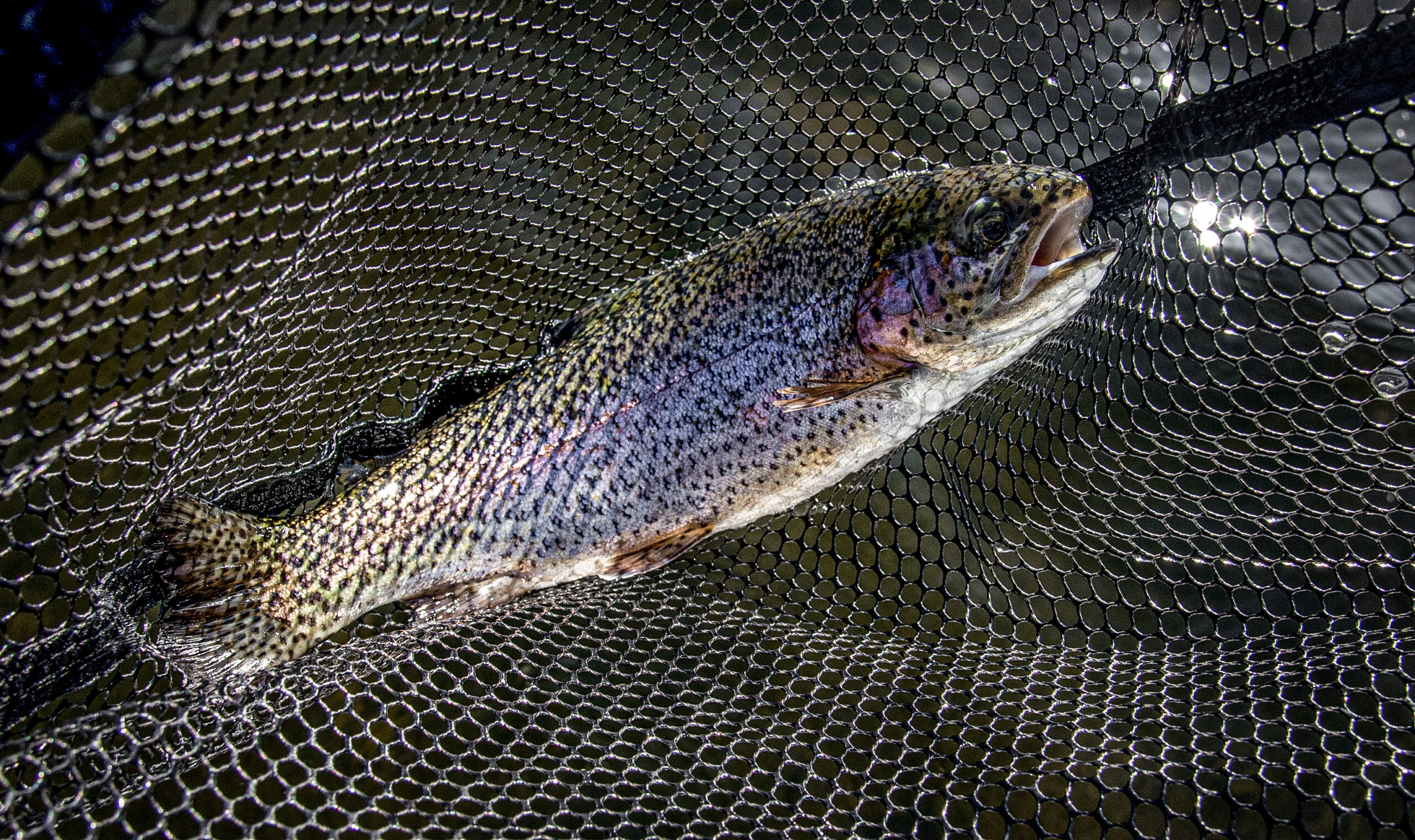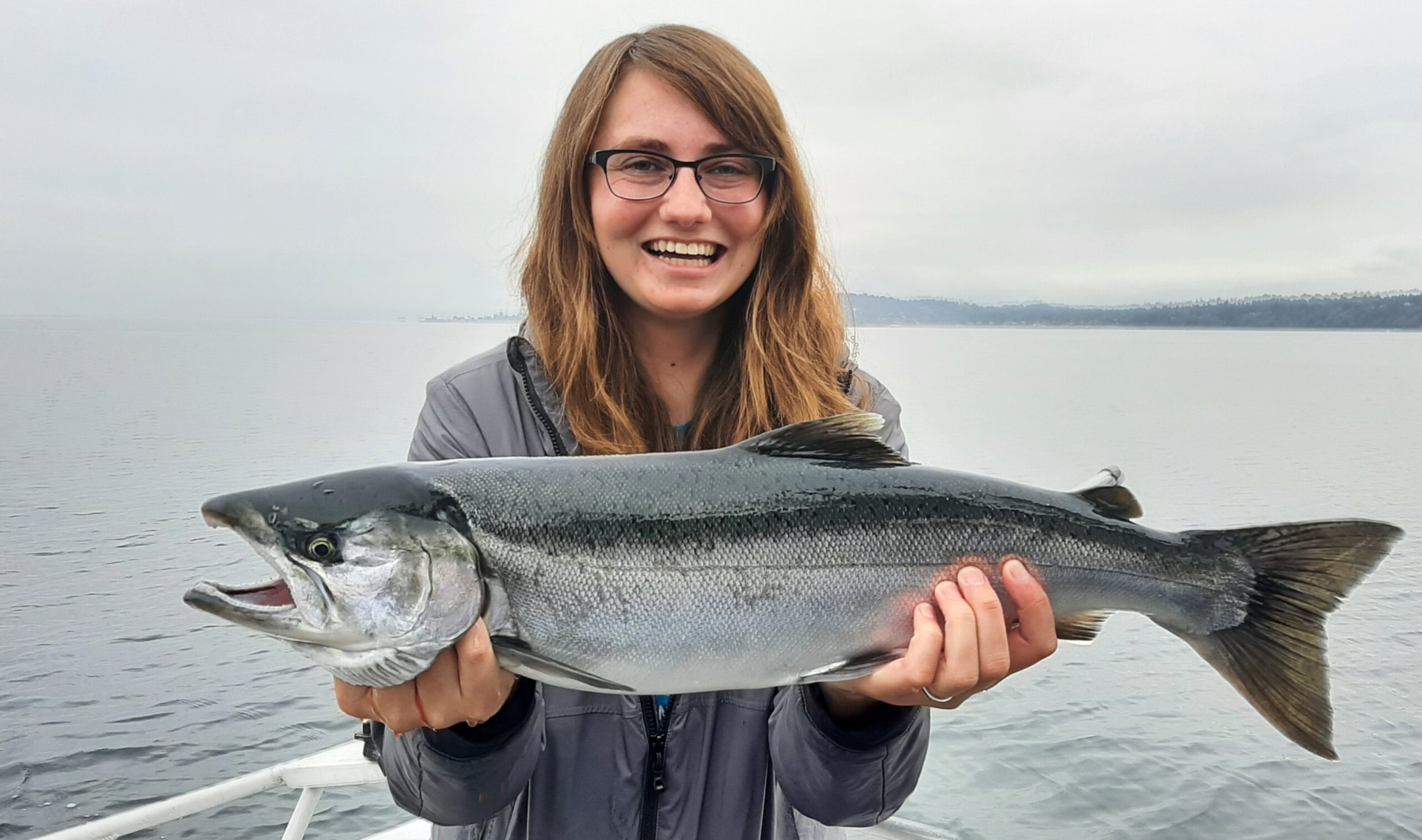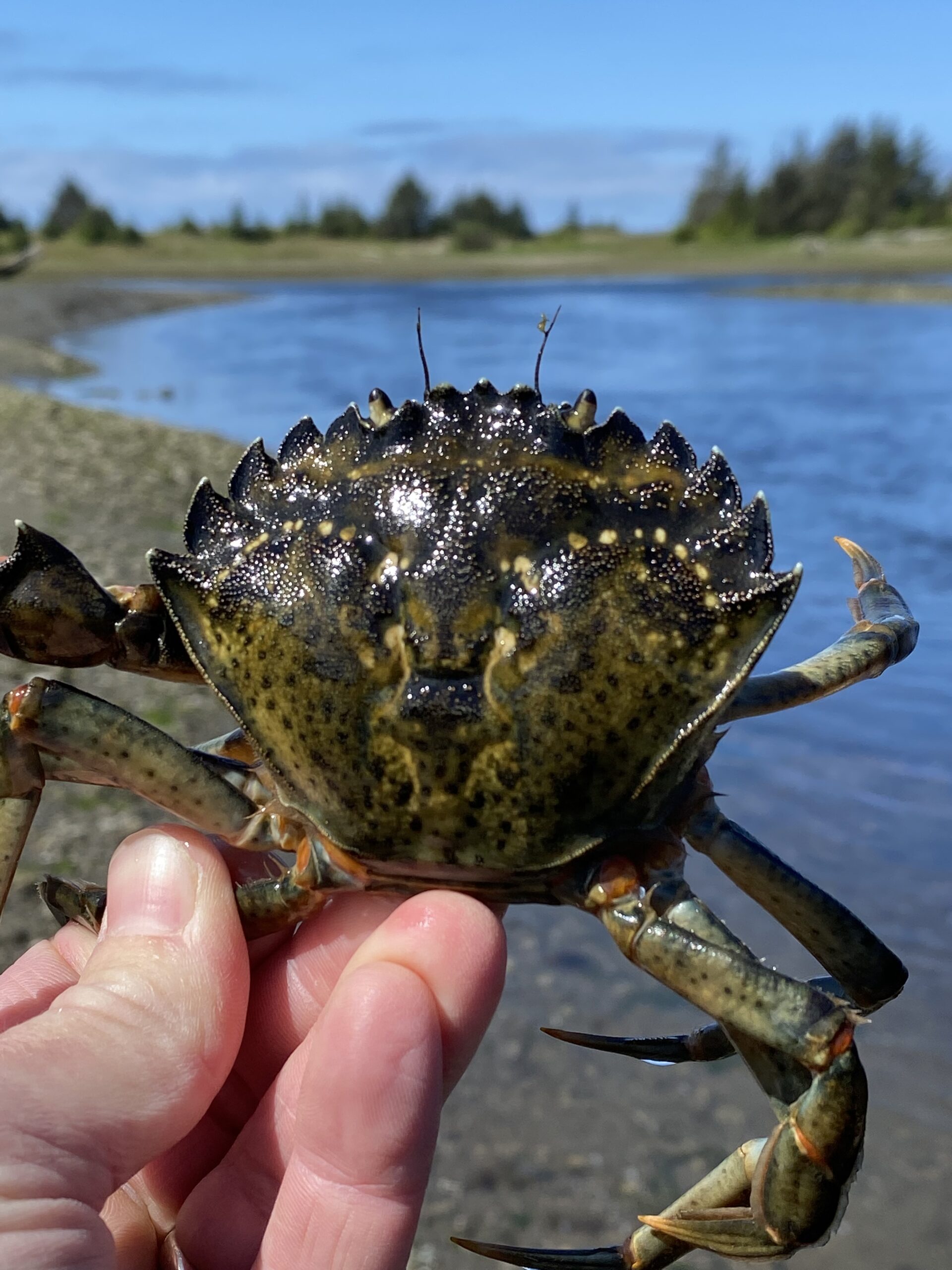By Mike Carey
My son Matt moved to Montana for college several years ago, and now lives in Great Falls with his wife. On our numerous trips to Montana my wife and I have driven past streams and rivers that just cried out “Fish Me”, but I have never had an opportunity.
Until this year, that is. Our schedules finally lined up, gas got cheap, and with a green light from my Better Half I threw my two person pontoon on top of the truck and we headed over to Great Falls. My target fishery was the Missouri River and its famed trout. To say I was excited was an understatement!
Let’s start with little background on the Missouri River. First off, the Missouri is the longest river in the United States and was the main route for expansion into the west. Besides fishing, what the Missouri river is most well-known for is the exploration by Lewis and Clark in 1804-6.
The expedition was commissioned by President Thomas Jefferson to find a water route across the newly purchased Louisiana territory to the Pacific Coast. Lewis and Clark were (besides a few trappers) the first white men to cross this land, map, and scientifically document the area.
Of course, the area had long been home to various Native American tribes, including the Missouri, the Osage, and the Sioux.
Once running wild and free, this river is now dammed in several locations, impacting the flow and original character of the river. The Holter Dam and Canyon Ferry Dam are two dams that regulate the flow of the Missouri from Wolf Creek all the way to Great Falls.
Because of the dams, river flows can be very predictable. In the spring, the river flows at around 5-7,000 cfs, around two miles per hour. The river running from Wolf Creek to Cascade is a drift boaters dream, with well-spaced put-ins and take-outs, developed and rough access points, and easy flowing water.
For the shore angler, there are numerous locations one can get out and fish prime stretches of water. For those new to the area, the fly shops at the towns of Craig and Cascade can offer all the advice and gear you could ask for, including rentals of drift boats and pontoons.

For our two days of fishing, Matt and I focused on a couple different drifts, which allowed us to see a good stretch of the river. On Saturday we drifted from Stickney Creek to Prewett Creek (11.5 miles), and on Sunday a mile north of Wolf Creek to Stickney Creek (7.6 miles).
The two drifts each had their pros and cons. Stickney Creek to Prewett offers by far the most scenic waters, with towering rocky cliffs and formations at every turn. Imagining this land as Lewis and Clark travelled through was truly inspirational for me. The sense of history was over-whelming.
The Wolf Creek to Stickney drift, on the other hand, is the entrance to the canyon area, and as such had more open fields lining the shoreline, slowly building to rock formations hinting at the canyons to come. It also offered more areas where the drift slowed down, and required a bit of work on the oars to move through.
The weather for our trip truly dictated our approach to fishing on our floats. I have normally found Montana weather to be inviting and pleasant in the spring, but on this trip we had cold, rain, and gusting winds that made for challenging fishing conditions.
My son has never fly fished and it became obvious early on that he would have a difficult time casting a fly line. As for myself, I was able to cast flies some of the time. I tried a variety of sinking nymphs, wooley buggers, scuds, and blood worms. It was tough rowing, casting into the wind, and helping Matt all at the same time.
We decided to put aside the fly rods and cast spinners. So much good water and runs to fish! Matt scored the first fish of our weekend, a beautiful brown trout with bright spots and feisty as can be. His excitement at catching his first Montana trout warmed us up despite the cold, rain, and hard blowing wind.

Mile after mile flowed by, as we cast our spinners, catching a fish here, and a fish there. These Missouri river trout may be targeted primarily by fly guys, but they act just like trout anywhere else – they can’t resist a shiny number 2 quarter ounce spinner going by their face. Heck, with so many guys fly fishing the hardware anglers may have an advantage.
By the way, the stretch of the river between Helena and Great Falls is estimated to hold around 4,000 trout per mile. Cold, clean water, rich in nutrients for the rainbow and brown trout, the river has a healthy population of fish to target. And many of these fish are over 16”, and range into the low 20s.
From the Montana Department of fish and wildlife:
“Fish surveys this year indicate rainbow and brown trout numbers remain above the long-term average in the Missouri River between Holter Dam and the town of Cascade, says a state fisheries biologist.
State fisheries crews this fall estimated 5,194 rainbow trout greater than 10 inches long per mile near the town of Craig on the Missouri. Not only is that above the long-term average of 3,174 rainbows per mile, but continues a trend of above average numbers over the past three years: 6,034 per mile in 2011 and 7,312 in 2012.
This year’s population was bigger in size and slightly lower in abundance than the past two years, says Fish, Wildlife and Parks fisheries biologist Grant Grisak, which is typical as the current population reaches its maximum size.
“This year,” Grisak says, “87 percent of the rainbow trout in the Craig section were 15 inches long or greater, and 35 percent of the population was 18 inches long or longer.”
With such numbers come large crowds of anglers, both local and out of state. On our weekend we had the river to ourselves, which I decided was a fair trade-off considering the conditions. I think being a winter steelheader in the Pacific Northwest gave me an edge, at least for tolerating miserable conditions!
We didn’t catch huge numbers of fish, but did catch some real quality, 16-18 inch rainbows and brown trout. But more importantly, my son and I enjoyed a true bonding experience in a uniquely beautiful part of Montana.






















